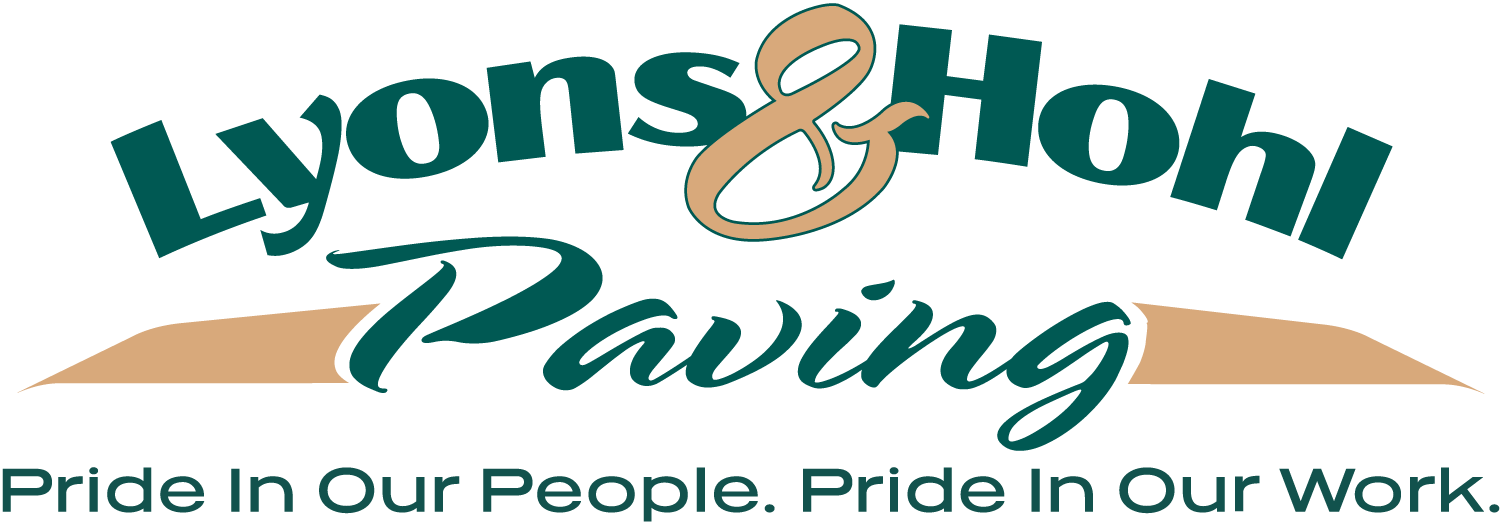WHAT’S THE DIFFERENCE BETWEEN ASPHALT PAVING & SEAL-COATING?
The smooth, black texture of a newly paved driveway is great for curb appeal and always makes a fabulous first impression. But, just like everything else, asphalt pavement deteriorates over time due to vehicle traffic and extreme weather conditions—such as intense sun, freezing temperatures, ice, and snow. Other environmental factors, such as road salt, engine oil, and gasoline are also harmful.
Eventually, your asphalt pavement will need to be repaired or replaced. That’s when homeowners typically begin looking for paving services like asphalt paving or seal-coating.
So, what’s the difference between asphalt paving and seal-coating, and which one is right for your driveway? In today’s post, we break down the differences and offer tips to help you decide.
What is Asphalt Paving?
Asphalt paving is a general term used to describe the application of hot asphalt to a driveway or parking lot surface. The term can be used to describe the process of creating a new driveway or a method to repair existing asphalt pavement.
Asphalt paving is often recommended to repair asphalt surfaces with major cracks and potholes. Services can range from simple overlays to complete resurfacing.
While a simple overlay adds a thin layer of hot asphalt to existing layers, complete resurfacing involves removing and replacing the old asphalt.
When done correctly, asphalt overlays can address many minor and major defects, such as cracking or potholes. Resurfacing is often recommended for more serious issues such as pooling water, cracking edges, or other signs of aging.
How much does asphalt paving cost?
The cost of asphalt paving varies depending on the size of the paved area and the specific services involved. Generally, asphalt paving can cost up to 10 times more than an average sealcoating service. Still, it’s often necessary for older driveways or driveways with extreme damage.
Properly installed asphalt driveways can last 15 to 20 years with regular maintenance.
How long should I wait to drive on the new surface?
A newly paved asphalt surface can take more than 30 days to fully cure, depending on the weather. However, you should be able to drive on the new surface within 3 days. When driving on new surfaces, you should avoid turning the steering wheel when the car is not in motion to prevent scuff marks.
When should I consider asphalt paving?
Asphalt paving is generally recommended to repair or resurface driveways that are at or near the end of their service life (typically 15 to 20 years). Asphalt resurfacing is also recommended to correct serious issues such as ponding water, deep cracks, or crumbling edges.
Who can help me with asphalt paving?
Here at Lyons & Hohl Paving, we specialize in asphalt paving, and you can count on us to get your residential, commercial, or industrial paving job done right. In our home service area around Lancaster, Berks, Chester, Delaware, and Montgomery counties in PA, you will be hard-pressed to find a more experienced paving resource.
What is Seal-coating?
Seal-coating is the application of a specially-formulated liquid coating to asphalt pavement. As the liquid dries, it hardens to seal the pavement from water penetration, sun damage, and chemicals that can degrade asphalt surfaces over time. Typically made from refined tar or petroleum products, seal-coating also reduces friction, creating a smoother driving or parking surface.
Unlike asphalt paving, seal-coating is not a method used to repair asphalt surfaces. Think of seal-coating more like pavement maintenance instead of a repair service. Any defects that exist under the surface will remain after the seal-coating is complete.
While seal-coating can effectively cover small cracks and blemishes, it is much more effective at protecting your driveway from damage than repairing existing defects.
How much does seal-coating cost?
The cost of seal-coating varies depending on the size of your driveway. When prep work is completed properly, seal-coating can make your driveway look brand new again for a fraction of the cost of asphalt paving and resurfacing. Regular seal-coating is also one of the best ways to extend the life of your driveway—just be sure not to make these big DIY seal-coating mistakes!
How long does seal-coating last?
An application of seal-coating (typically 2 full coats) should last about 3 years if your asphalt pavement is in good shape. Older asphalt driveways may require annual seal-coating to maintain their protection and appearance.
How long should I wait to drive on my seal-coated driveway?
You should not drive on a newly seal-coated driveway for 24 to 48 hours after application. Drying time varies depending on relative humidity, temperature, and sun exposure.
When should I consider seal-coating my driveway?
Regular seal-coating is recommended for all asphalt driveways that are at least 6 months old. Seal-coating can significantly extend your driveway’s lifespan by slowing the normal degradation of the asphalt that results from freeze-thaw cycles, road salt, oil, gasoline, and sun exposure.
While the terms asphalt paving and seal-coating are often confused, each of these services has different purposes. Seal-coating can repair very minor cracks or defects, though it is typically used to maintain and protect asphalt surfaces. Asphalt paving is useful to repair or replace damaged or aging asphalt driveways.
Does Your Driveway Need Help?
While we are not a seal-coating contractor, Lyons & Hohl Paving provides high-quality paving services for residential homeowners and commercial and industrial clients throughout Lancaster, PA, as well as Berks, Chester, Delaware, and Montgomery counties.
Contact us today for a free estimate to solve your most extreme asphalt surface challenges.
